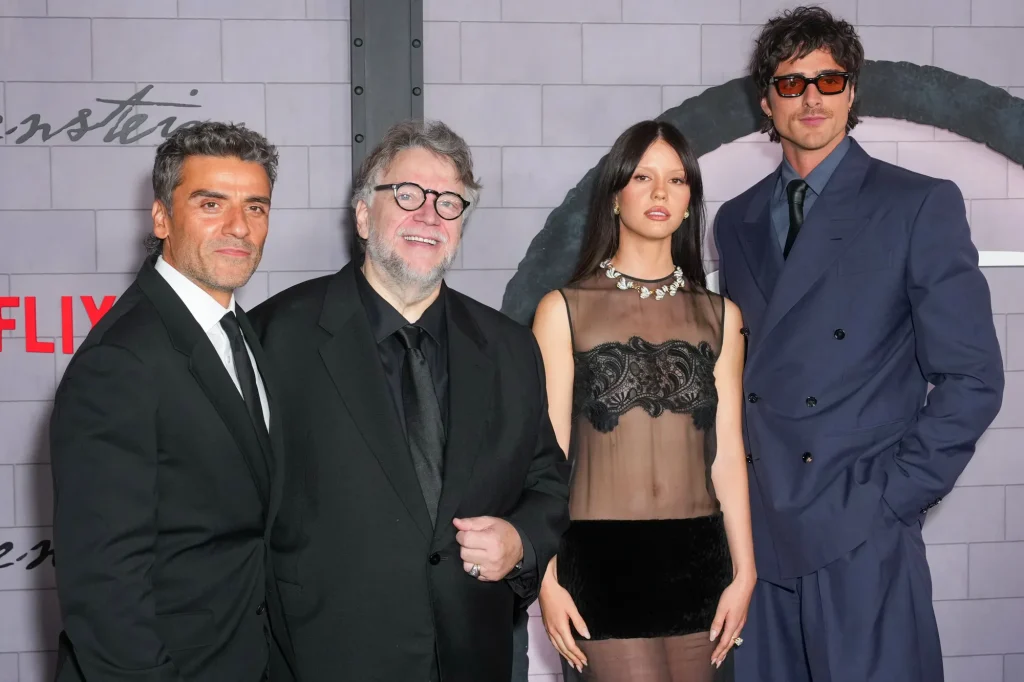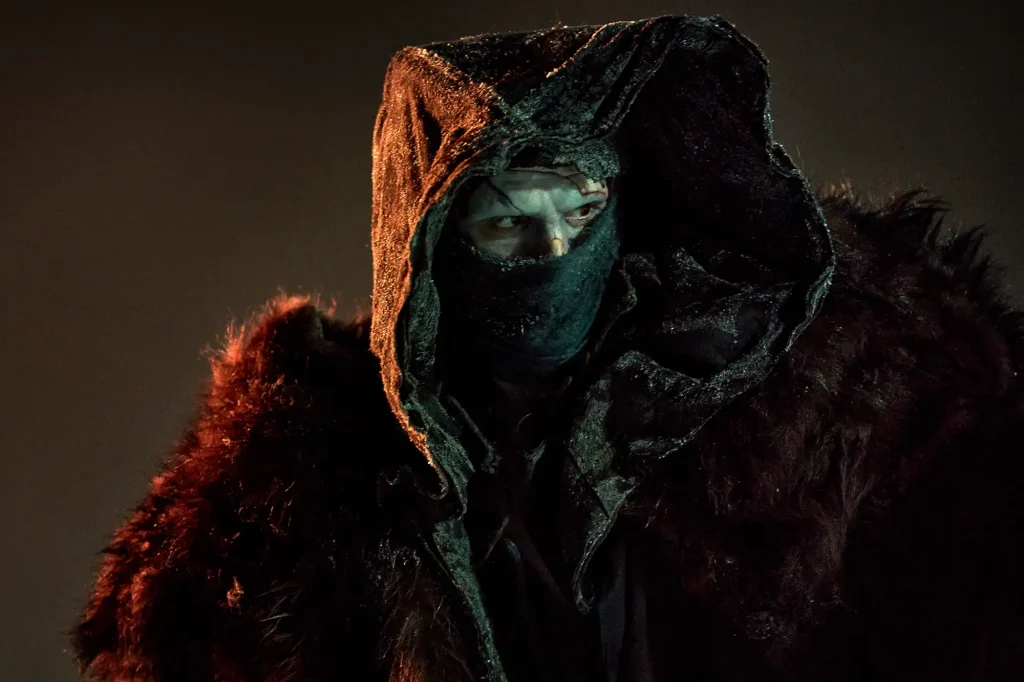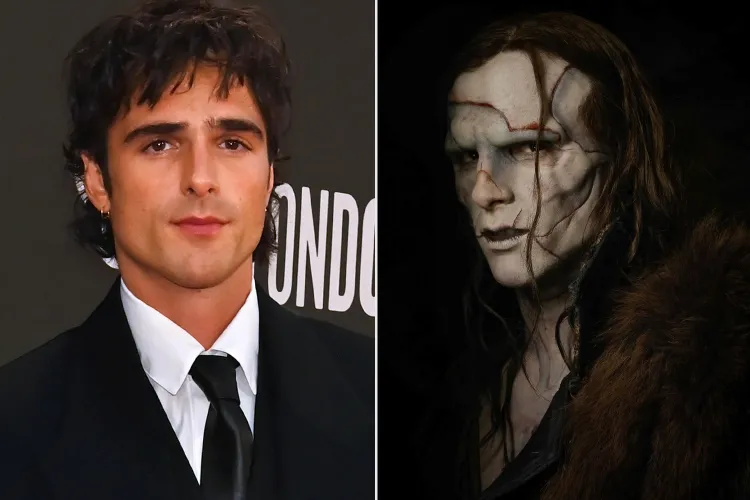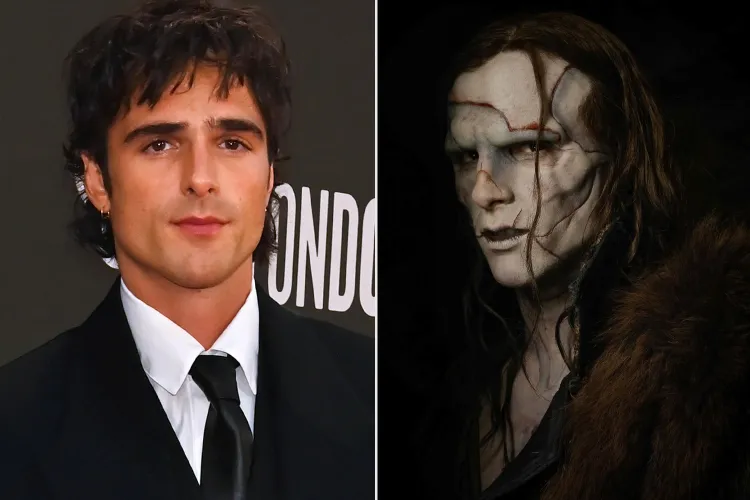Jacob Elordi Is Completely Unrecognizable as Frankenstein’s Creature in Guillermo del Toro’s New Adaptation — Fans Stunned by His 10-Hour Daily Makeup Transformation
Jacob Elordi has officially entered a new era in his career — one that few could have predicted. Known for his heartthrob image in shows like Euphoria and romantic films like The Kissing Booth, the 27-year-old actor has undergone a jaw-dropping transformation to become Frankenstein’s creature in Guillermo del Toro’s highly anticipated adaptation of Frankenstein. The film, which will stream on Netflix starting November 7, has already begun limited theatrical screenings, and the first full reveal of Elordi’s monstrous new look is taking the internet by storm.

The transformation is nothing short of astonishing. The first stills from the film show Elordi covered in elaborate prosthetics that took nearly 10 hours to apply each day. With his face carved into deep, scarred contours and his skin a chilling pale gray, the once-familiar features of the Australian actor have been completely erased, replaced by a haunting, sorrowful creature that seems both terrifying and tragic — exactly what del Toro is known for creating. The makeup design, crafted by an award-winning prosthetics team, reportedly required layers of silicone, airbrushed detail, and hand-painted veins to achieve the lifelike but unsettling effect.
Guillermo del Toro, the Oscar-winning filmmaker behind The Shape of Water and Pan’s Labyrinth, has long dreamed of bringing Frankenstein to life. His adaptation promises to be unlike any previous version — a blend of gothic horror and heartbreaking humanity, told through the lens of his distinctive visual storytelling. Del Toro’s interpretation focuses deeply on the emotional core of Mary Shelley’s classic novel — the isolation, the pain of creation, and the search for belonging that drives both the creature and its maker.

In del Toro’s Frankenstein, Elordi stars as the Creature, while Oscar Isaac plays Victor Frankenstein, the scientist whose obsession with reanimation sets the tragedy in motion. Mia Goth also stars in a key role, adding another layer of eerie beauty to the film’s atmosphere. Early critics’ reactions to the first footage have praised Elordi’s performance as transformative, calling it “mesmerizing,” “brutally vulnerable,” and “career-defining.”
For Elordi, this marks a major departure from his usual roles. Known for portraying confident, often morally complex young men, this part demanded something entirely different — an emotional performance buried beneath hours of prosthetics, requiring patience, restraint, and total surrender to del Toro’s vision. In interviews, Elordi has said that the process was grueling but worth every second, describing the experience as “a full metamorphosis.”

The actor’s journey from romantic dramas to gothic horror feels like a testament to his artistic evolution. Many fans still remember his breakout as Noah Flynn in Netflix’s The Kissing Booth trilogy, followed by his acclaimed turn as Nate Jacobs in HBO’s Euphoria. Now, with Frankenstein, Elordi joins a long line of actors who have risked reinvention — stepping into a role that demands not just talent, but total transformation.
Del Toro’s adaptation also continues his fascination with misunderstood monsters — beings that mirror human suffering more deeply than most humans themselves. In the newly released stills, Elordi’s eyes, barely visible through the prosthetics, convey an aching sadness that captures the essence of Shelley’s creation. It’s the loneliness of someone who never asked to exist, now forced to live in a world that fears and rejects him.
With its November release just around the corner, Frankenstein is already being hailed as one of Netflix’s most ambitious film projects of the year. The combination of Elordi’s shocking transformation, del Toro’s visionary direction, and the timeless source material seems destined to deliver something extraordinary — a story that’s not just about horror, but about the fragile beauty and darkness of being human.



